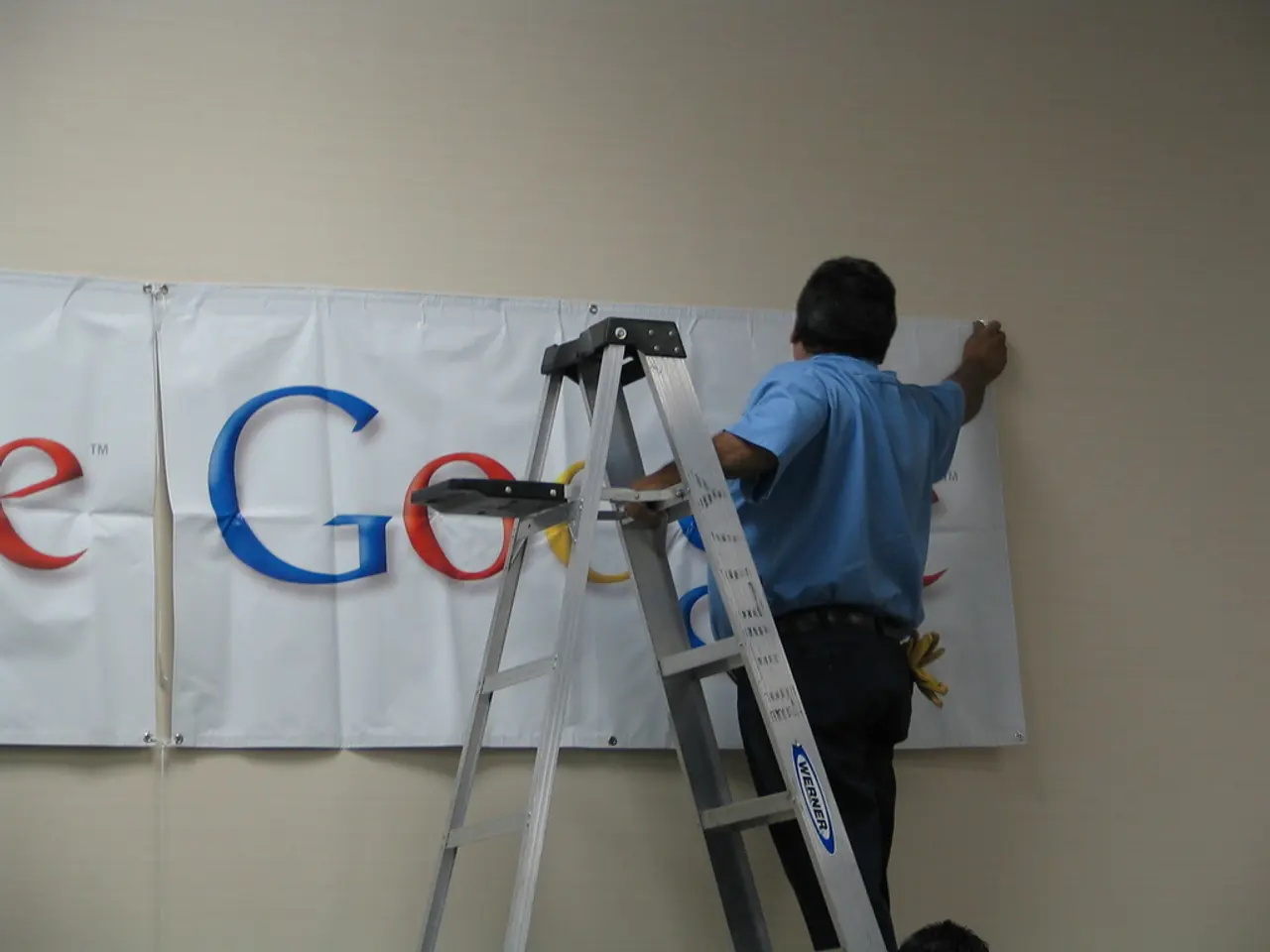Decline in Traffic Prompts Controversy Regarding Google's Search Dominance and AI Influence
In recent times, a significant shift has been observed in the digital publishing landscape, with multiple independent studies, including Pew Research and Ahrefs, reporting reduced click-through rates and increased "zero-click" searches since Google AI Overviews were launched.
This trend has coincided with a drop in monthly visits to news sites from over 2.3 billion to under 1.7 billion, a decline that could be particularly damaging to niche publishers relying on search-driven discovery.
According to a Pew Research Center study, only 8% of searches with an AI Overview triggered a click on a traditional result, compared to 15% for searches without such summaries. Clicking links directly within the AI summaries was even rarer, at just 1% of visits. Users were also more likely to end their browsing session after viewing an AI Overview (26% abandon rate) versus those without (16% abandon rate).
The prevalence of AI Overviews has grown, with about 18% of Google searches in March 2025 generating them and summarizing content from multiple sources like Wikipedia, YouTube, and Reddit. These summaries often fulfill users’ information needs without directing traffic outward.
Industry data further correlates AI Overviews with declining referral traffic to publishers, including a 25% drop in referral traffic reported by some publishers, with news and non-news brands seeing year-over-year declines of 7% and 14% respectively in the first half of 2025. Experts like Jason Kint (DCN CEO) attribute these declines directly to Google’s AI features.
Despite Google's public statements disputing the negative traffic impact, third-party analytics and real-world experience indicate the rise of AI search features is changing user click behavior and eroding the traditional search ecosystem.
Potential implications for digital publishing include a sustained drop in referral traffic from Google Search, growing challenges for publishers to monetize content, the possible need for publishers to adapt SEO strategies, diversify traffic sources, and explore new content distribution or monetization models given the shift toward zero-click answers on Google.
Concerns about the web ecosystem’s health arise if AI summaries reduce visibility and engagement with original content sites, affecting the diversity and vitality of online information sources.
Google continues to refine its AI Overview algorithms, hinting at future changes to better highlight source attribution and improve transparency. However, the debate over Google AI Overviews Traffic Decline raises concerns about the potential marginalization of smaller online voices.
Governments in the European Union, the United States, and India are examining whether AI-driven search features unfairly leverage content without proper attribution or compensation. Small businesses have reported sudden visibility drops for informational queries where AI Overviews now dominate the page.
As the digital publishing industry adapts to these changes, publishers are experimenting with strategies to adapt, such as optimizing for AI Overview inclusion, diversifying traffic sources, and using schema markup and structured data enhancements.
[1] Pew Research Center. (2025). The Impact of Google AI Overviews on Digital Publishing. [2] Ahrefs. (2025). The Decline in Click-Through Rates and Traffic Due to Google AI Overviews. [3] SimilarWeb. (2025). The Impact of AI-Driven Search Features on Web Traffic. [4] DCN. (2025). The Google AI Overviews Traffic Decline: Implications for Publishers. [5] European Commission. (2025). Examination of AI-Driven Search Features and Content Attribution.
The rise of AI Overviews on Google has significantly impacted digital publishing, as indicated by research from Pew Research Center, Ahrefs, and SimilarWeb, showing reduced click-through rates, increased zero-click searches, and declining referral traffic to publishers. The prevalence of these AI-generated summaries, which often fulfill users' information needs without directing traffic outward, is changing user click behavior and potentially marginalizing smaller online voices.
Expert analysis, such as that from DCN CEO Jason Kint, attributes these declines directly to Google's AI features. Governments in the European Union, the United States, and India are examining whether AI-driven search features unfairly leverage content without proper attribution or compensation, while publishers are experimenting with strategies to adapt, such as optimizing for AI Overview inclusion and diversifying traffic sources.




